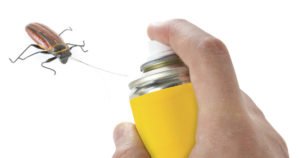
Researchers Say Cockroaches Are Becoming Immune To Insecticides
Summer has come, and all sorts of insects are coming out and are terrorizing a number of households in the world. With heat comes danger, and another shocking and horrifying fact has been discovered by researchers from Purdue.
Researchers from the Purdue University found out that German Cockroaches, which are the most common types of roaches that are found worldwide, are becoming more immune to insecticides.
The new study is published in the journal Scientific Reports, and it showed that German roaches are living in Human environments, and can produce asthma-triggering allergens, and are capable of carrying pathogens such as E. Coli, Salmonella, Enterococcus, and many other antibiotic-resistant microbes.
Researchers tried a number of insecticides on the unwelcomed guests, but they realized that roaches have developed a resistance.
A number of insects are capable of developing resistance to at least one type of insecticide. But, roaches, which are only capable of living around one-hundred days, are capable of evolving on a higher rate, and roaches that can develop resistance can pass the gene down to new generations.
As a test, researchers from the Purdue University used 3 insecticides on 3 different roach colonies for over 6 months. All the products were store-bough from retailers and were registered under the E.P.A. All the insecticides were applied by licensed pest management professionals.
One roach colony got hit with three insecticides, another roach colony got hit with a mixture of the insecticides, and the third colony got hit by only one chemical.
But all the efforts of the researchers were wasted when they saw that the roach colonies did not decline in size. The researchers even tried to use a number of insecticides all at once, this technique is used by exterminators, but still, the size of the colony did not decline.
But, Abamectin Gel Bait, a type of insecticide, is capable of wiping out one cockroach colony.
Researchers said that they will have to do further genetic testing will be needed to determine why the roaches are getting immune to insecticides.
Researchers of the Purdue University said, “Overall, the unexpectedly poor performance of a majority of treatments in the field study suggested significant levels of starting resistance and/or selection for higher-level resistance in 4–6 months.”